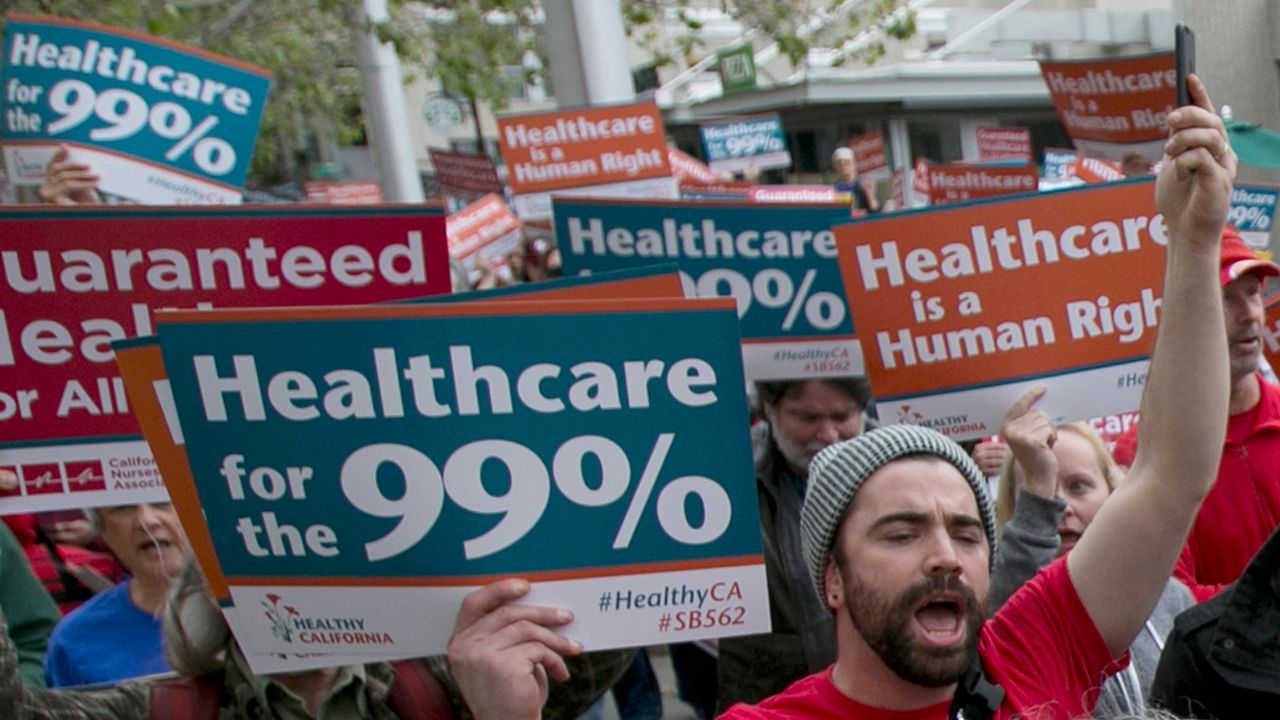The Civil Service Employees Association, one of the largest public worker unions in the state, is continuing to press forward with an effort opposing the New York Health Act, a bill that would create a single-payer health care system in the state.
CSEA in recent weeks released a flyer to members raising concerns with the cost of the proposal and warning workers they would be shifted out of their current insurance plan to a government-run entity.
“Your current health insurance would be eliminated,” the flyer says, and urges union members to call their state lawmaker.
For some public-sector labor unions, the concern surrounding the New York Health Act is an acute one: Health benefits were negotiated by the union with management, altering other benefits and pay schedules along the way.
Sen. Gustavo Rivera, the Democratic sponsor of the measure in the state Senate, said in an interview Wednesday the two issues shouldn’t be in conflict.
Under a single-payer system, unions would not have health care as a leverage point in contract negotiations, he said.
“Let’s talk about wages, let’s talk about retirement, let’s talk about creating a fund to get our kids through college — there’s a lot of things they can do if they don’t have to worry about coverage,” he said.
Still, union opposition can be formidable in New York, which has the highest labor organization of any state in the country.
State lawmakers next year are once again expected to make a renewed push for the New York Health Act against the backdrop of a presidential campaign in which a variety of proposals — from a national single-payer plan, to a “Medicare for those who want it” idea and an expansion of Obamacare — have been made by the Democrats seeking the nomination.
Rivera, a Bronx Democrat, said he understood the concerns raised by some labor groups and he wants to work with them.
He’s taking a cautious approach with CSEA’s concerns, saying the flyer to members wasn’t necessarily inaccurate, but didn’t contain enough information.
“We take their concerns very seriously,” he said. “We know this isn’t something we’re going to achieve without the men and women in labor.”
He pointed to the labor groups that have endorsed the single-payer model, including key players like 1199, CWA, 32BJ and the New York State Nurses Association.
Lawmakers this summer traveled to Canada to assess the country’s health care system there, and plan a public hearing in the Bronx later this month.
Rivera recently endorsed Sen. Elizabeth Warren’s presidential bid. And he’s hopeful that if Democrats are in charge of the federal government by 2021, a national single-payer measure can be approved.
But until then, he thinks New York lawmakers have a role to play.
“We have the ability to do it, we have the capacity to do it, we have the obligation to do it,” he said.



